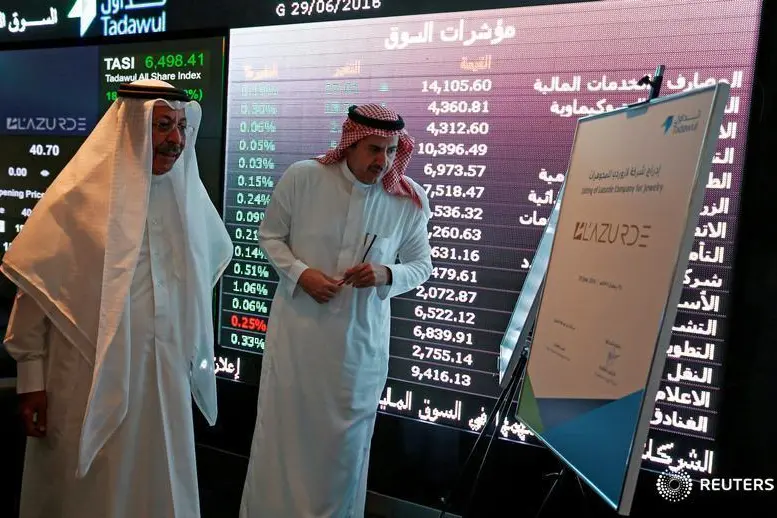PHOTO
Business in Saudi Arabia is resuming following the killing of journalist Jamal Khashoggi in Saudi Arabia last October, but "it's not resuming to the same rhythm what it did before the events of last year", Morgan Stanley's Middle East and North Africa chairman and CEO Sammy Kayello told the Global Financial Forum in Dubai on Monday.
Speaking in response to a question about the fallout from Khashoggi's death in a Saudi consulate in Istanbul in October 2018, Kayello said that the kingdom was going through "a socio-economic change, a financial and regulatory change (and) a political change," as the country seeks to diversify under its Vision 2030 strategy.
“Before the events of last year…, there was a lot of interest in both the region and Saudi" Kayello said, due to its demographics, untapped infrastructure potential and the fact that many regional currencies have a peg to the United States dollar, removing potential currency risk.
"But subsequent to what happened, there's been a bit of a pullback as some of the long term money is looking for stability, safe havens, is looking for ESG - environmental, social and governance - and so on," Kayello said.
"Some work needs to be done to get confidence to return to where it used to be," he added.
A net $1.86 billion of foreign money flowed out of Saudi Arabia's stock market in the last quarter of 2018. However, by February 26 this year, around $1.8 billion had flowed back into the market through equity swaps and through qualified foreign institutions, according to figures provided to Zawya last month by brokerage EFG Hermes.
In a press conference held in Dubai last week, Hatem Alaa, a managing director of research at EFG Hermes, said that it expects passive inflows into the kingdom's market of around $17 billion this year following upgrades to emerging market status by index providers FTSE Russell, MSCI and S&P Dow Jones. Alaa said that he expected a similar, or even higher, inflow from passive funds.
However, the New York Times reported last week that U.S.-based talent agency Endeavor has handed back $400 million in funding from Saudi Arabia, and renowned emerging markets specialist Mark Mobius told journalists on the sidelines of the Global Financial Forum yesterday that it had no plans to invest in the kingdom.
"I think now, many people are concerned about the political environment because of the Khashoggi situation and so forth. So I think it's going to take a year or two before people really begin to say 'Ah, yeah, Saudi Arabia is a place we want to be'. That will depend on the degree to which reforms are really taking place," Mobius said.
"What I mean by that is it's well to have women driving, it's well to have suppression of radical religious ideas, but it also means you've got to have consensus within society. The degree to which the prince can engender that consensus will really determine what happens going forward. I think up to now, there'll be still some degree of uncertainty," Mobius said.
Speaking on a separate panel debate, Karim el-Solh, managing director of Abu Dhabi-based private equity fund Gulf Capital, said that it was upbeat on the prospects for the kingdom, where it completed a deal last year to invest $267 million in fintech firm Geidea.
"If you told me five years ago I would be looking at investing in tourism and entertainment in Saudi I would not believe you. But these are some of the new industries coming up," El Solh said.
"We like what we see and we want to be part of it. We are active investors in Saudi, in the UAE and in the region as a whole."
(Reporting by Michael Fahy; Editing by Mily Chakrabarty)
Our Standards: The Thomson Reuters Trust Principles
Disclaimer: This article is provided for informational purposes only. The content does not provide tax, legal or investment advice or opinion regarding the suitability, value or profitability of any particular security, portfolio or investment strategy. Read our full disclaimer policy here.
© ZAWYA 2019




















